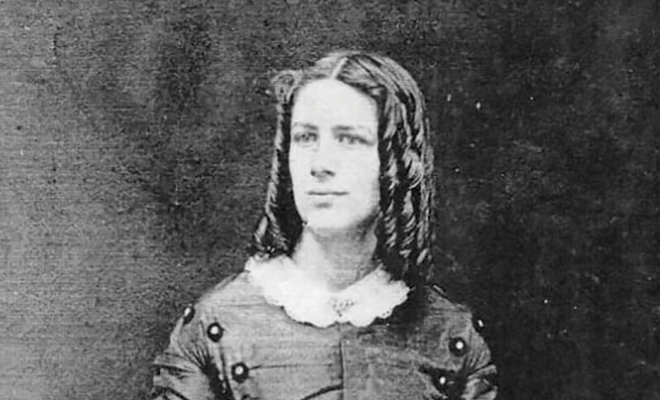 Photos courtesy of the San Joaquin County Historical Museum
Photos courtesy of the San Joaquin County Historical Museum
Laura de Force Gordon: Trailblazer and Suffrage Warrior
As far as young women trailblazers are concerned, San Joaquin County has few historic figures as accomplished as Laura de Force Gordon. The Lodi native was the first woman to publish a daily newspaper in the United States and the second woman to pass the bar in California and become an attorney.
Born Laura de Force in Pennsylvania on August 17, 1838, Laura was a deeply religious woman whose Christian spiritualist convictions drove her to succeed in life. As an early adult, she traveled the east coast giving lectures on temperance, women’s suffrage and spiritualism. In the late 1860s, she met her husband, Dr. Charles H. Gordon. The pair moved to Nevada and then California soon thereafter. Laura continued her lectureship along the way, and in 1868 gave California’s first recorded speech on woman’s suffrage in San Francisco. She founded the California Woman’s Suffrage Society in 1870 at the wee age of 32.
Her family settled in Lodi, and after a brief attempt to run for office in 1871 was scuttled by a refusal of newspapers to cover her, she purchased the Stockton Leader and converted the paper to a daily in 1874. As a publisher, she was allowed a press desk in the state legislature, the first woman to have one. Not satisfied with her work as a journalist, Gordon soon pursued work as an attorney. With friend Clara Shortridge Foltz, Gordon lobbied state lawmakers to change state rules to allow women to pass the bar and become attorneys. In March 1878, their work culminated with the Woman Lawyer’s Bill, which allowed any “citizen or person” to pass the bar. Gordon and Foltz then registered to attend Hastings College of Law in San Francisco. On their second day, they were directed not to return by the board of directors without an explanation. Instead of giving up, they continued to attend until they were physically prevented by their male classmates.
Undeterred, Gordon and Foltz submitted an amendment to the second California state constitutional convention, taking place in 1879: “No person shall, on account of sex, be disqualified from entering upon or pursuing any lawful business, vocation or profession.” The amendment was adopted. Gordon and Foltz then filed lawsuits against Hastings. The two were soon admitted and became the first two woman admitted to the state bar. Gordon would then go on to become admitted to the Bar of the Supreme Court, also only the second woman to do so. She would pass away in 1907 from a bout of pneumonia while speaking in Los Angeles.
Gordon was by no means a saint. Like other Democratic party members of her day, she was an advocate against Chinese immigrants to California and gave numerous anti-Chinese and anti-immigrant lectures. In particular, she often made the case that Chinese and Catholic men should not be allowed to pursue a career barred to white women. Some historians point out that, due to her frequent defense of Chinese and Italian immigrants in court, such an argument may have been made for political expediency only. Nonetheless, Gordon is an excellent example of the complexity of morals in history.
As a trailblazing young woman, Laura de Force Gordon was second to none in her day. As a community organizer, journalist, entrepreneur, lobbyist and attorney, Laura de Force Gordon was truly a force to be reckoned with.
Written by: Phillip Merlo







